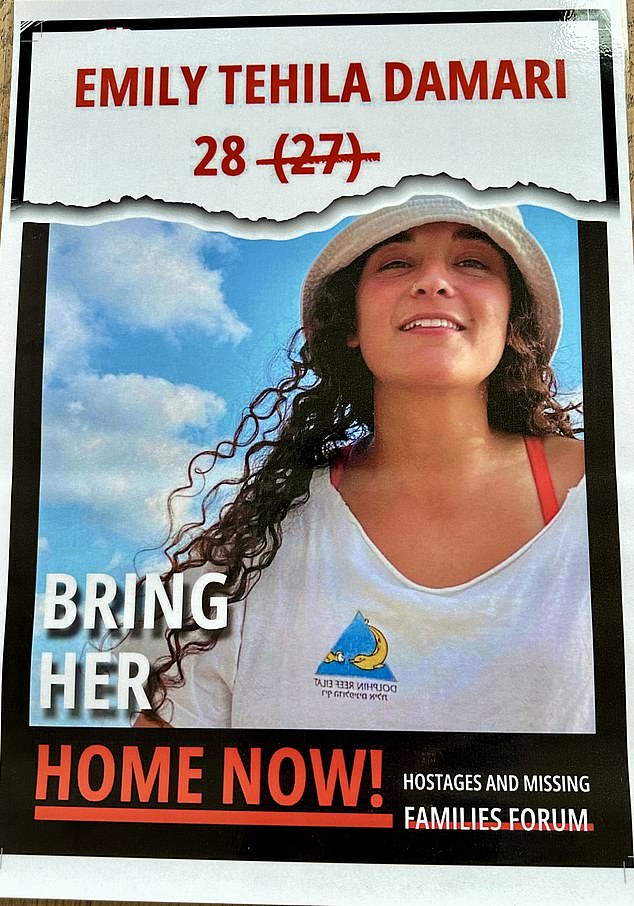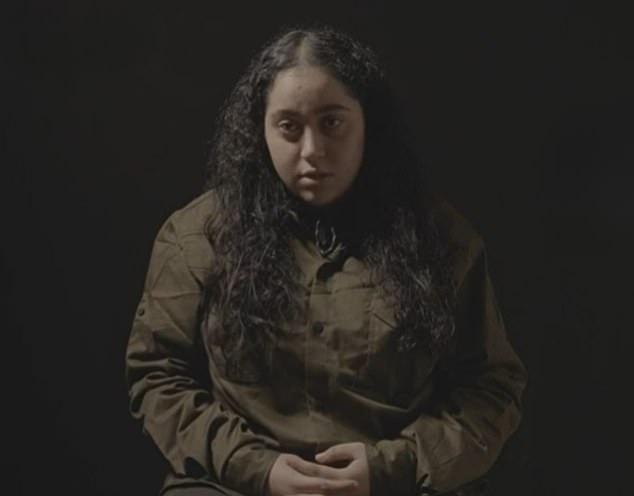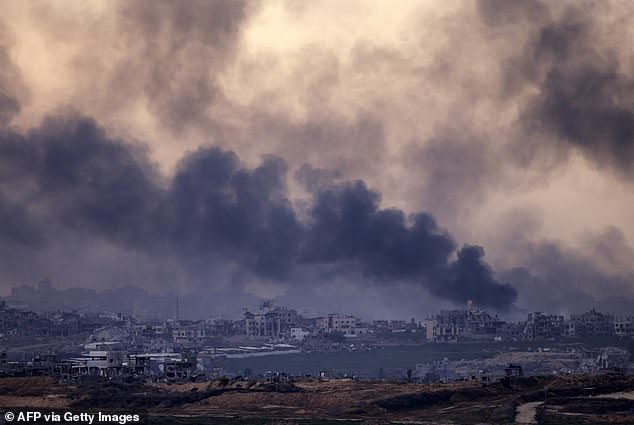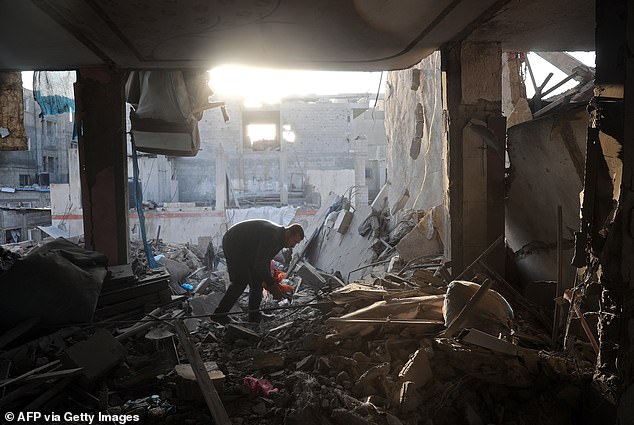Israel accuses Hamas of ‘psychological terror’ for naming dozens of hostages it said it is ready to release – despite not even confirming if they are ALIVE
Israel has accused Hamas of “psychological terror” for naming dozens of hostages it says it is willing to release – despite not even confirming whether they are alive.
The terrorists leaked 34 names of prisoners to the press on Sunday and said they were willing to free them in exchange for a ceasefire in Gaza.
They include Emily Damari, the only British prisoner still held in the Gaza Strip, among 10 women and 11 men over 50, and 11 people identified as sick.
But Benjamin Netanyahu claimed that this was in fact a list of people he requested for release last July, to which they received no response.
The document has caused immense distress to the families of hostages whose names are not included, while the loved ones of those who insist fear they are being manipulated by the extremists.
Among the 34 are one-year-old Kfir Bibas and his brother Ariel, five, whom Hamas claimed were killed a year ago.
An official from the Prime Minister’s Office dismissed it as a “spin” to put pressure on Israel during the negotiations and called on the media to ignore the “propaganda and psychological terror.”
“They haven’t said who’s alive and who’s not; they did not send any list,” they said. “So as far as we are now, there is no progress.”
Israeli Prime Minister Benjamin Netanyahu claimed the names were a list of people he asked for release last July but received no response

The list includes hostage Emily Damari, the only British prisoner still held in the Gaza Strip

Hamas has released a sickening hostage video of Liri Albag, who remains held in Gaza more than 450 days after her brutal kidnapping
A Hamas source told Saudi newspaper Asharq Al-Awsat yesterday that Palestinian factions need another week to provide details on the condition of each hostage on the list.
Previously, the terrorists have requested a ceasefire just so they can check who is still alive.
The inability to provide proof of life has emerged as one of the main sticking points in negotiations so far, with fears that Hamas has lost track of many of the prisoners.
But mediators are keen to build on US Secretary of State Anthony Blinken’s momentum, hoping to finally get a deal done before Donald Trump takes office on January 20.
“We really want to get this across the finish line in the next two weeks, in the time we have left,” he told a news conference in South Korea yesterday (Mon).
With nearly 100 hostages remaining in Gaza, more than half of whom are believed to be alive, Israel last summer proposed a partial release of 40 hostages as the first phase of a ceasefire.
Since then, five on that list have been executed by Hamas: Hersh Goldberg-Polin, Almog Sarsuri, Eden Yerushalmi, Carmel Gat and Avraham Munder. Meanwhile, one, Kaid Farhan al-Qadi, was rescued by the IDF.
Mediators had pushed for an initial partial release as a bridge proposal, as Hamas demands a total withdrawal before every hostage is released, while Israel will not withdraw until all prisoners are released.
It is the first phase of a three-phase agreement that would end with a total ceasefire and IDF withdrawal.

Smoke rises from Sterod, Gaza after the Israeli bombardment on January 5

A man searches for his belongings amid the rubble of a destroyed building after an Israeli airstrike in Gaza on January 6
But yesterday the Hostages Forum, which represents the families of the prisoners, said the list had left them “deeply shocked and saddened”.
A spokesman said: ‘The time has come for a comprehensive agreement that will bring back all hostages.’
It comes as the UN World Food Program said yesterday that Israeli forces opened fire on their convoy in Gaza on Sunday in a “horrific” attack. Three vehicles carrying eight personnel were hit by 16 bullets near the Wadi Gaza checkpoint, with no injuries reported.
Meanwhile, three Israelis were shot dead and seven others injured in the West Bank yesterday.
